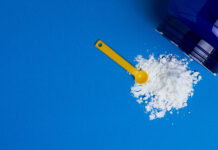
Diet is the fundamental building block in an athlete’s training plan and every athlete needs to take an individualized approach to nutrition. That’s the key message in the recently updated national position paper on nutrition and athletic performance, jointly prepared by the Dietitians of Canada, the Academy of Nutrition and Dietetics (U.S.) and the American College of Sports Medicine.
Topping the report’s nutrition recommendations is a focus on carbohydrate, the primary fuel for athletic endeavours. Carbohydrate intake should be adjusted based on an athlete’s bodyweight, daily training schedule and training intensity. An athlete’s individualized nutrition plan should include 3-10 grams of carbohydrate per kilogram of bodyweight per day.
More intense days will require more carbohydrates. Insufficient carbohydrate intake is associated with premature fatigue and reduced performance capacity.
Some of the other key highlights include:
- Protein intake for athletes should range from 1.3 to 2.0 grams per kilogram body weight per day, depending on the sport.
- Sports drinks continue to be supported for use in intense exercise endeavours of longer than 60 minutes.
- Only a limited number of sport supplements actually do what they say they will. (Creatine is one of them).
- Vegetarian athletes are at notable risk of inadequacy in protein, fat, creatine, carnosine, n-3 fatty acids and key micronutrients such as iron, calcium, riboflavin, zinc and vitamin B12.
- Athletes should aim for fluid consumption in the 5-10 ml./kg. of bodyweight in the hours before a big race, game or event.
- High fat, low carbohydrate diets (i.e. most fad diets) are not recommended for peak performance.
To read the full report, visit dietitians.ca.
Recipes:
Here are two pre and post-game meal recipes based on performance science provided in the report.















